- - What is Dental Implant Infection?
- - What Symptoms Indicate a Dental Implant Infection?
- - How to Prevent Dental Implant Infection?
- - How to Treat Dental Implant Infection?
- - Conclusion
Dental implants are a great way to replace any missing or badly decayed teeth you might have. Even though they aren't your natural teeth, you should still take care of them as if they were your normal teeth. After all, they're still your teeth, and you want to keep them healthy!
We understand that everyone's experience with dental implants is a little different. Some people might face a few extra challenges along the way, and that's okay! In this article, we're going to discuss dental implant infections and how you can avoid them so you can keep your tooth implants for life.
What is Dental Implant Infection?
Dental implant infection is relatively rare but can have serious consequences if left untreated. It typically begins with the buildup of bacteria that is not addressed. This can lead to peri-implant mucositis, which involves inflammation of the soft tissue (mucosa) around the implant. If left unmanaged, it can progress to peri-implantitis, a gum disease affecting both soft and hard tissue, which can result in bone loss and implant failure. If left unchecked, it can even lead to a systemic illness that is more challenging to treat and can damage other organs.
What are the Main Causes of Dental Implant Infections?
As with natural teeth, dental implants can become infected if bacteria proliferate and form plaque, which can affect the gums and underlying bones. It is not uncommon for a plaque biofilm to form between the titanium implant and prosthetic crown, gradually extending to the gum. Dental implant infection may result from a number of factors, including the following:
- Poor dental hygiene: Not cleaning your teeth enough lets bacteria build up.
- Smoking: Smoking makes it harder for blood to reach the gums. This means that nutrients cannot get in and waste cannot get out. It also makes your mouth more likely to get infected.
- Immune system weakness: If your immune system is compromised for whatever reason, it can really affect your body's ability to fight bacteria, which can eventually lead to infection.
- Jaw and Gum Conditions: Additionally, the occurrence of osteoporosis and periodontitis, which are characterized by gradual bone loss, can also result in dental implant infection.
- Diabetes: Some diseases, such as diabetes, can also result in infection due to their impact on metabolic processes and the immune system.
- Allergy: It is possible that an allergic reaction to the implant itself may be a contributing factor.
- Certain medicines: The use of medications such as bisphosphonates for the treatment of cancer is also regarded as a potential contributing factor.
- Malocclusion or parafunctional habits: Malocclusion, including crossbite, overbite, underbite, and open bite, as well as bruxism, or teeth grinding, can eventually result in the accumulation of bacteria and subsequent infection of the tooth implant.
- Improper placement: In a dental implant procedure, the surgical technique is of paramount importance. It ensures proper sterilization and precludes the formation of a gap between the implant and the jawbone, which would otherwise provide an opportunity for bacteria to flourish.
What Symptoms Indicate a Dental Implant Infection?
It is crucial to be aware of the potential symptoms of a dental implant infection in order to prevent further spread and reduce discomfort. Some of these symptoms include:
- Gum inflammation, which can include redness and swelling
- Disturbance of taste
- Bad breath
- Pain or discomfort around the implant
- Pus drainage
- Difficulty in chewing
- Bleeding
- Loose or shifting of the implant
- Metallic taste in the mouth
If you notice any signs of infection, please contact your dentist right away and follow the instructions. If you don't treat it, a minor inflammation can turn into a serious infection that affects your whole body.
How to Prevent Dental Implant Infection?
The key to successful implants is prevention, which is easy if you start right after your surgery:
- Follow the post-operative instructions provided by your dentist. These instructions are designed according to your individual needs, so it is essential to adhere to them rigorously.
- Maintain a regular dental hygiene routine that includes flossing and brushing your teeth twice a day. However, it is important to be gentle.
- Remain hydrated as water can flush away bacteria buildup.
- Watch out for too much sugar, including drinks and fruit juices.
- Try to reduce your physical activity during the healing process.
- Avoid chewy foods for two weeks after surgery. Eat soft foods like soups, smoothies, yogurt, cottage cheese, oatmeal, mashed potatoes, scrambled eggs, bananas, and applesauce.
- Refrain from smoking as it can reduce your success rate by 10%
- Get your implants checked and cleaned twice a year.
How to Treat Dental Implant Infection?
The treatment's primary objective is to stop the progression of infection and to maintain the implant. This is achieved through an accurate diagnosis, based on X-ray imaging, of any potential bone loss. Subsequently, periodontal probing will ascertain the stage of infection, after which a treatment plan will be devised. This will comprise a combination of the following methods:
- Antibiotics
As the primary line of defense against potential infection, they provide a crucial barrier against any oral pathogens, whether in the form of pills or prescription-strength mouthwash. On occasion, antimicrobial therapies are prescribed for infections caused by other microbes.
- Mechanical debridement
This method is appropriate for use in shallow mucosal pockets, where a carbon fiber curette or an ultrasonic device should be employed. The high-frequency waves used in this technique are also referred to as 'submucosal debridement' and are capable of effectively removing any infected material that may be present in the area surrounding the implant.
- Laser surface decontamination
This innovative approach employs laser beams to effectively remove contamination from the surface of the titanium implant and surrounding tissues. The pulse settings are adjusted in accordance with the severity of peri-implantitis.
- Surgery
In cases where access to the infection site is not possible, a surgical method or open flap debridement is employed. This involves opening a flap of gum to gain access to the infection site. As required, mechanical debridement and antiseptics are also combined.
- Implant removal
This is the most unfavorable outcome, occurring when the level of infection is severe and bone loss is significant. This often occurs when peri-implant mucositis develops into deep peri-implantitis. In order to carry out this procedure, surgical instruments such as a trephine or a forceps are typically employed.
Once a sufficient period of recuperation and bone grafting has been completed, reimplantation may be considered as a potential option.
Conclusion
While dental implant infections are rare, they are a preventable occurrence. It is within your power to prevent dental implant infection by following the aftercare instructions and daily hygiene routines provided by your dentist. It is also crucial to select a highly experienced dentist to prevent infection. The surgical technique can effectively minimize the risk of bacterial growth.
We at Turkey Luxury Clinics are proud to be at the forefront of dental procedures in general and dental implants in particular! We can restore your flawless natural smile with our unrivaled experience.
If you have any questions about dental implants and infection treatment, our friendly team at Turkey Luxury Clinics is here for you. Just give us a call!




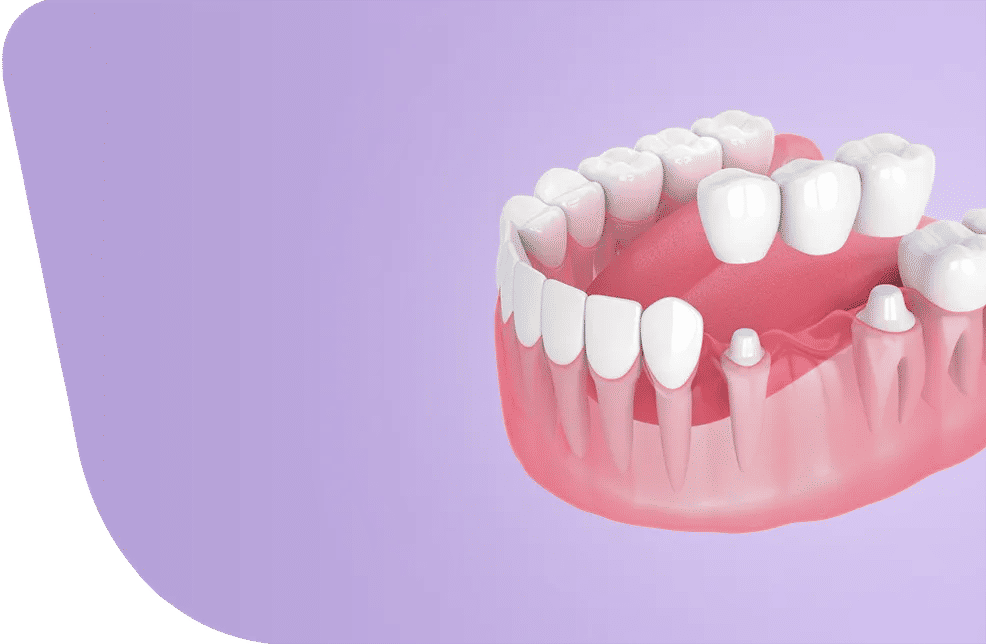
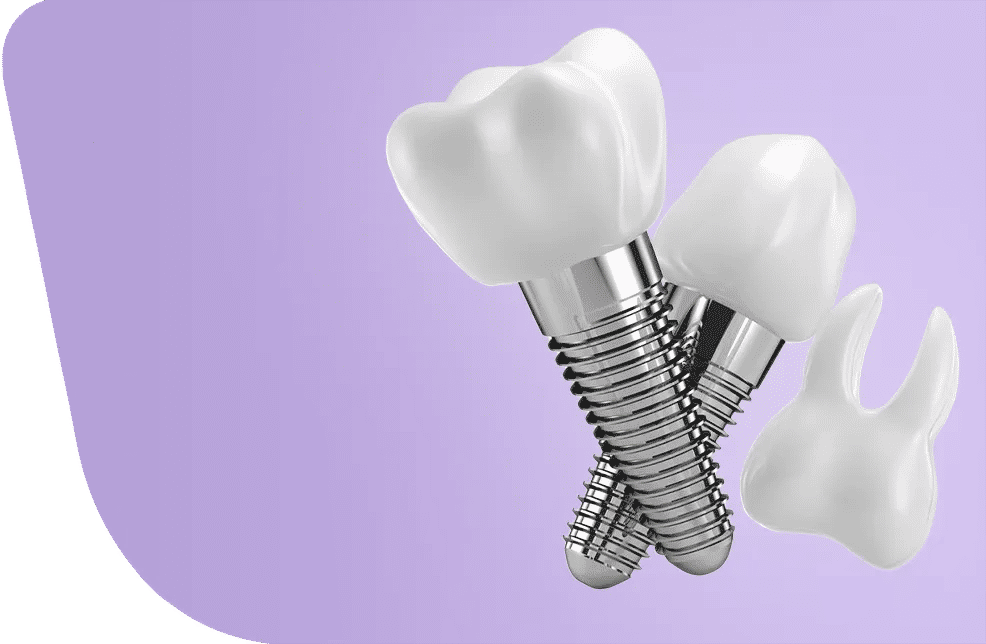
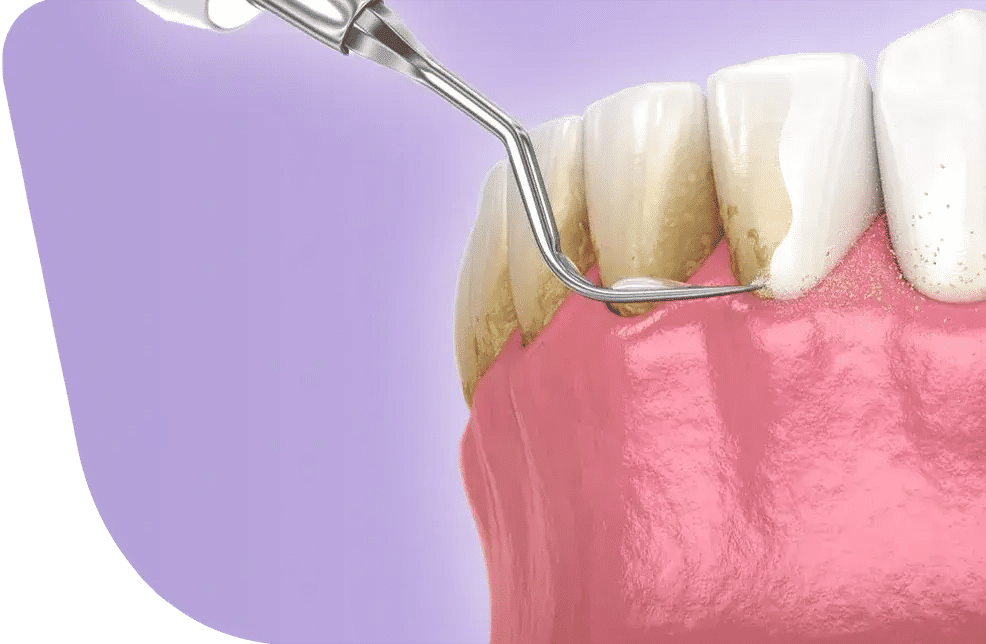
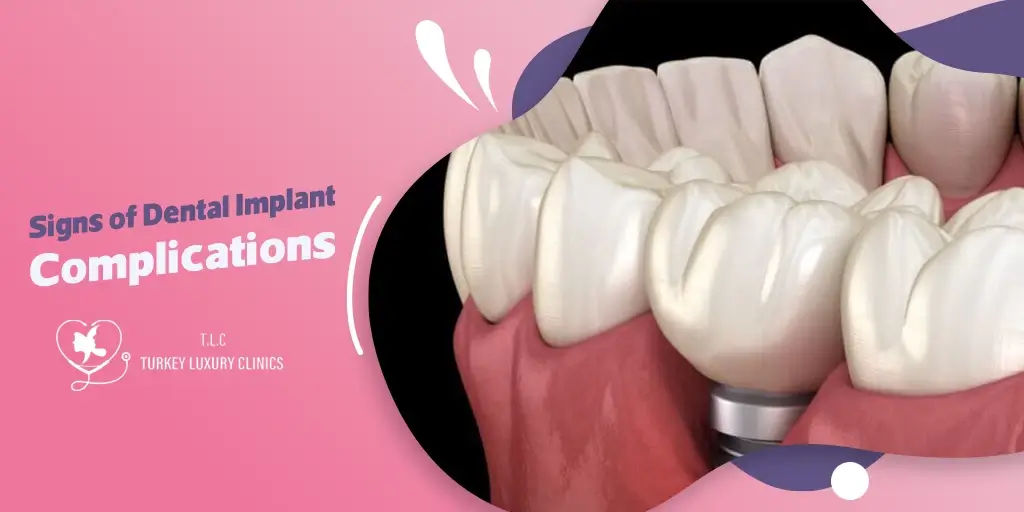
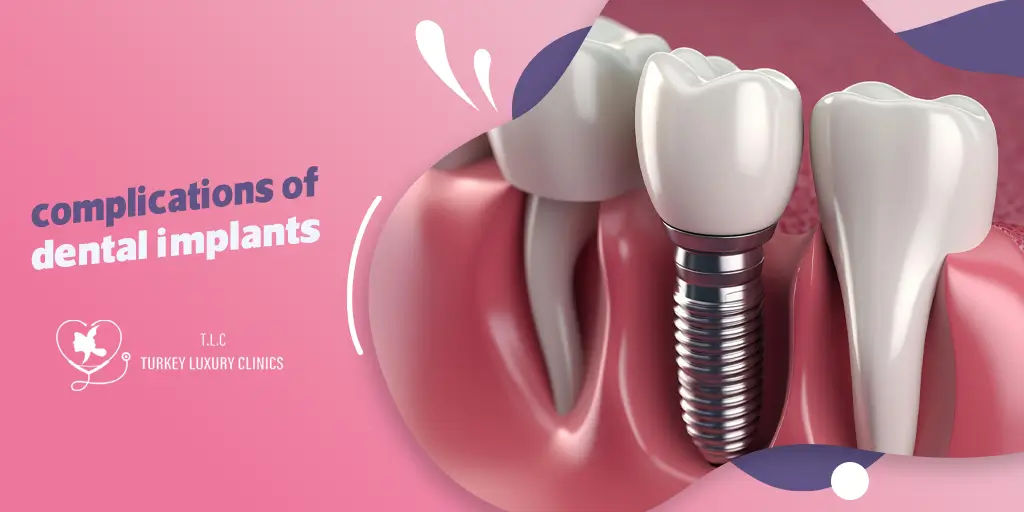
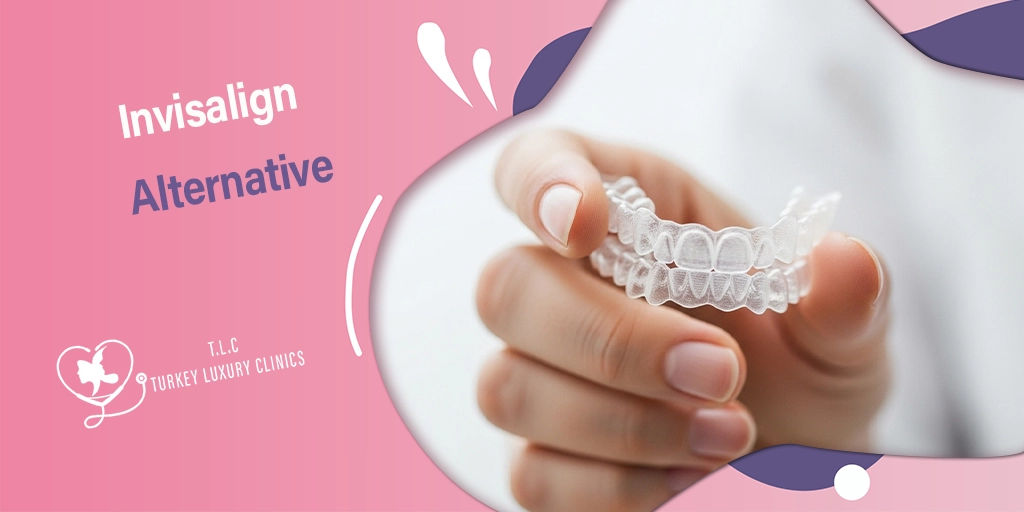




.webp)
.webp)
.webp)
.webp)

